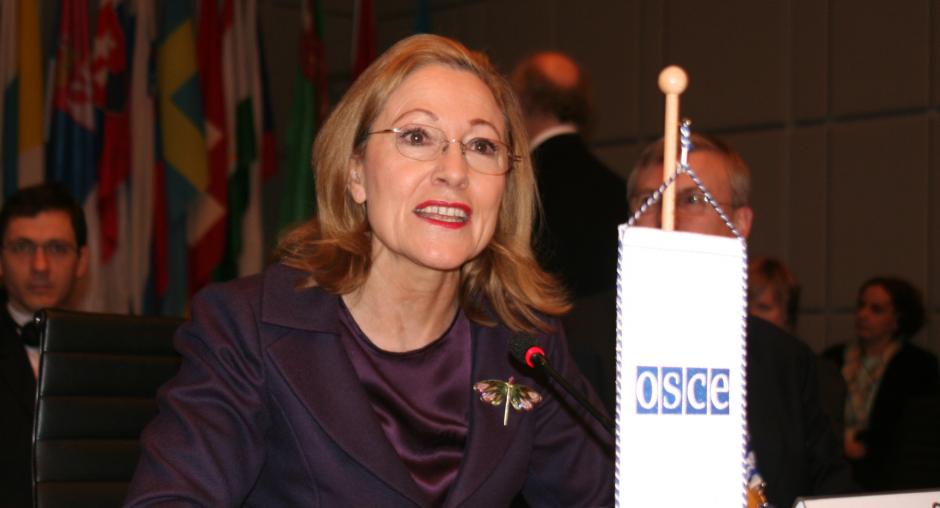OSCE, EU should build on OSCE field presence and human security work, says EU External Relations Commissioner

VIENNA, 31 January 2008 - Increased co-operation between the European Union and the OSCE to bolster the OSCE's extensive field presence and to develop a human security agenda offers both organizations opportunities for the future, Benita Ferrero-Waldner, the European Commissioner for External Relations and Neighbourhood Policy, told the OSCE Permanent Council today.
In this regard, Ferrero-Waldner underscored the need to continue the OSCE's work in Kosovo, where the Organization has its largest field presence.
"OSCE field presences are doing valuable, irreplaceable work," she said. "In Kosovo all communities, including the Serb minority, have a vital interest in the OSCE's work on protection and on confidence- and institution-building. Any threat to the OSCE's presence will be at the expense of the most vulnerable members of Kosovo's society: ethnic minorities."
The Commissioner said the EU looked forward to co-operating with the OSCE in Central Asia, and she commended the recent decision of the 56 OSCE participating States on enhancing engagement with Afghanistan.
"Stability in Afghanistan is important for the entire OSCE region. I very much welcome the decision taken at the Ministerial Council in Madrid on stronger OSCE engagement, and look forward to close consultation and co-ordination with you," she said.
Ferrero-Waldner noted that further developing a human security agenda, particularly with respect to humanitarian disarmament, reinforcing the legitimacy of political rule - including through monitoring elections - and addressing climate change, offered scope for increased co-operation between the EU and the OSCE.
"I am personally very dedicated to the concept of human security putting the security of individuals at the heart of our policies. OSCE institutions already contribute to promoting human security from their work on national minorities to monitoring the freedom of the media to fighting intolerance. But there is scope for greater development and increased co-operation between the EU and the OSCE," she said.
The Permanent Council is the 56-country OSCE's main, regular decision-making body. It meets weekly in Vienna to discuss developments in the OSCE area and to make appropriate decisions.
